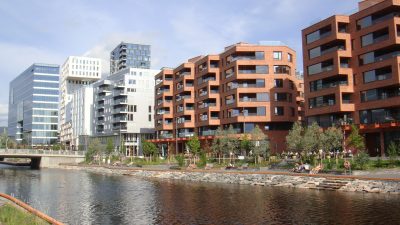Norwegian businesses can bank on getting more state compensation for losses tied to the Corona virus crisis. The government has largely defied rising criticism that some of the compensation is too generous, with most programs set to continue after a vote in Parliament this week.

Norwegian media have featured lots of stories in recent weeks about how Norway’s biggest companies and wealthiest business leaders have received the most amounts of money. Newspaper Klassekampen, for example, reported this week how hotel tycoon Petter Stordalen has received several hundred million kroner over the past year, to the tune of more than NOK 50,000 per employee, most of whom are also collecting state unemployment benefits. Newspaper Aftenposten, meanwhile, turned the spotlight on the large oil service firm PGS, which has received around NOK 217 million (USD 26 million). Hundreds of the state’s billions have been spent trying to keep businesses afloat, so that they’ll survive the crisis and Norwegians will have jobs to return to when the pandemic subsides.
At the same time, however, have come stories about wealthy real estate investors controlling high-end residential properties who’ve also collected crisis aid because they haven’t been able to rent out luxury homes to wealthy visitors or business travelers. Newspaper Dagens Næringsliv (DN) noted how many fancy waterfront apartments in Oslo are standing empty, while their owners collect compensation from the state.
Dividend debate
There’s also been lots of complaints over how some businesses collecting aid have still paid out dividends to their shareholders. That has challenged many social democratic politicians’ feelings of fairness, with leaders of Labour, the Socialist Left and the Reds calling for a ban on paying out benefits to companies that are still paying out dividends.
“Many economists have criticized the generous support to major players,” newspaper Aftenposten editorialized on Tuesday while arguing that Parliament has been “too generous” and should cut compensation levels for big companies. “They have much greater opportunities than small companies to use their banks and the lending market,” Aftenposten wrote.
On the dividend issue, however, Aftenposten noted that “the money (in the companies) would still be lying there,” waiting for the Corona crisis to end. It could be paid out later in the form of dividends. “It’s therefore more important to criticize how much support is actually given,” the paper claimed.
Progress Party decisively backed ongoing compensation
Norway’s business-friendly Conservatives-led government won support in the end this week from its former partner, the Progress Party, to secure a majority for its eighth economic crisis package. It’s still important and necessary, Progress reasoned, to help Norwegian businesses overcome drastic declines in revenues caused by forced closures and other Corona containment measures.
The assistance comes in the form of reimbursement of up to 80 percent of “unavoidable” fixed costs. The only major change looming is the government’s power to lower the maximum amount of compensation to Norway’s largest companies. The business and trade ministry will now be able to limit compensation to any single company to NOK 50 million a month, down from NOK 80 million, as it sees fit.
“We thought it was correct for the government to have that ability,” Hans Andreas Limi, parliamentarian leader for the Progress Party, told newspaper Klassekampen. Higher compensation amounts were widely supported at the beginning of the crisis, Limi noted, “because everthing was so uncertain, and that bothered us. Now we see that it’s sensible to reduce support where necessary.”
Culture clash
His Progress Party was stirring up more controversy on Wednesday after its new candidate as party leader, Sylvi Listhaug, criticized the amounts of taxpayer money being granted to commercial cultural ventures, from theaters to concert arrangers. Listhaug claimed that players in the entertainment business “had a straw right into the state treasury.”
That drew immediate retorts that the oil industry she strongly supports has won much more financial aid during the crisis, not least through controversial tax breaks. Others claimed to be surprised that the increasingly nationalistic Progress Party that opposes immigration would deny funding for the Norwegian culture it’s otherwise so keen to protect.
Aftenposten reported this week that an extra billion kroner (around USD 119 million) had been allocated for small businesses including bars and restaurants that have been hit hard by forced closures and bans on alcohol. A total of around NOK 8.3 billion (nearly USD 1 billion) has been distributed to all businesses so far.
NewsInEnglish.no/Nina Berglund

